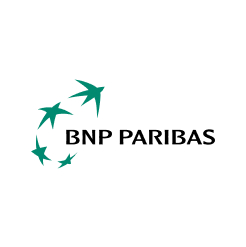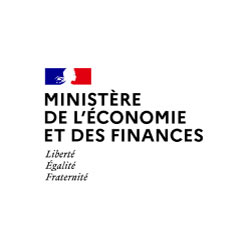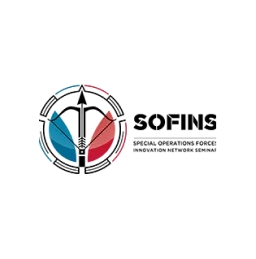Did you know that according to ENISA (European Union Agency for Cybersecurity), over 80% of European companies consider secure communication and digital certificate management as essential pillars of their digital strategy?
With the rise in cyberattacks and the complexity of modern IT environments, ensuring digital trust has become a priority. Implementing a Public Key Infrastructure (PKI) service is now essential for effectively managing digital identities, securing VPN access, encrypting emails, and protecting applications through SSL certificates and Single Sign-On (SSO) mechanisms.
This article guides you through the principles of a modern PKI service, its benefits, and the open source solutions for businesses offered by LINAGORA, a leading player in open source and digital sovereignty.
What is a PKI Service?
A Public Key Infrastructure (PKI) is a system that enables the creation, management, distribution, use, and revocation of digital certificates and public/private keys. These certificates are used to:
Authenticate users, servers, and devices.
Encrypt communications (e.g., email encryption, SSL, VPN tunnels).
Digitally sign documents and transactions.
The most widely used standard in this context is X.509, which defines the format of digital certificates. These certificates include the public key of the entity, verified identity, validity period, and the signature of the Certification Authority (CA).
In an open-source approach, a PKI offers increased transparency, enhanced interoperability, and freedom from proprietary lock-in.
Key Benefits of a PKI Service
A well-implemented PKI service provides numerous advantages:
- Enhanced Authentication: Users benefit from a single, secure entry point via SSO.
Encrypted Communications: Native integration of SSL/TLS for websites and email encryption via S/MIME or PGP.
Advanced Access Control: Fine-grained management of permissions, particularly for VPN access and sensitive applications.
Regulatory Compliance: Alignment with European standards such as eIDAS, GDPR, and ENISA best practices.
Flexibility and Cost Reduction: Use of open-source solutions (e.g., EJBCA, Dogtag, OpenXPKI) to reduce licensing costs while maintaining full control.
The Lifecycle of a Digital Certificate
Implementing a PKI service requires rigorous management of the digital certificate lifecycle, which includes several stages:
- Enrollment: The certificate request is created by the user or server via a Certificate Signing Request (CSR).
Validation: The Certification Authority (CA) verifies the requester’s identity.
Issuance: Generation and distribution of the signed X.509 certificate.
Usage: The certificate is used for authentication, encryption, or signing.
Renewal: Before expiration, the certificate is regenerated to avoid service interruptions.
Revocation: In case of compromise, the certificate is revoked via a Certificate Revocation List (CRL) or the Online Certificate Status Protocol (OCSP).
Automating this lifecycle is crucial for large organizations to prevent disruptions caused by certificate expiration.
Key Technologies in a Modern PKI Service
X.509 Standards: The de facto standard for digital certificates.
OCSP: Enables real-time verification of certificate validity.
HSM (Hardware Security Module): A hardware device used to securely store the private keys of Certification Authorities.
ACME (Automated Certificate Management Environment): A protocol for automating certificate issuance and renewal (used by Let’s Encrypt, for example).
SSO Integration: Use of certificates to federate authentication across multiple services.
Overview of LINAGORA’s PKI Services
LINAGORA, a major player in open source and digital sovereignty, offers a comprehensive PKI service, including:
Audit and PKI Architecture Design: Tailored for private cloud or on-premise environments.
Deployment of SSL and SSO Certificates: Securing web applications and internal access.
Automated Management of Digital Certificates: For servers, users, and IoT devices.
HSM Implementation and OCSP Integration: Enhancing security and availability.
Ongoing Technical Support and Training: For internal teams.
Regulatory Guidance: Ensuring compliance with eIDAS and GDPR requirements.
Why Choose LINAGORA?
Recognized Expertise: In secure infrastructures and open-source solutions.
Active Contribution: To community projects related to encryption and digital identity.
Sovereign Approach: Solutions based on open standards, hosted in Europe.
Tailored Support: From initial assessment to deployment and operational maintenance.
Typical PKI Use Cases
Securing VPN access for employees and partners.
Implementing email encryption with S/MIME.
Strong user authentication via SSO and client certificates.
Digital signing of legal and financial documents.
Protecting web servers with automatically renewed SSL/TLS certificates.
Ready to strengthen the security of your infrastructure?
Contact LINAGORA today to benefit from comprehensive expertise in implementing a PKI service tailored to your organization.
FAQ
1. Is an open-source PKI as reliable as a proprietary solution?
Yes, open-source PKI solutions are based on proven standards (X.509, OCSP, TLS) and benefit from open source community audits.
2. What is the role of an HSM in a PKI?
An HSM stores the private keys of Certification Authorities in a secure hardware environment, drastically reducing the risk of compromise.
3. How can certificate expiration be managed at scale?
Automation via protocols like ACME and proactive certificate monitoring prevent any interruptions.
4. Can a PKI integrate with an existing SSO system?
Yes, PKI can be used as an identity provider to federate authentication.
Conclusion
LINAGORA’s PKI service provides a robust, open-source infrastructure to ensure the digital trust of your organization. By integrating digital certificate management, SSL, SSO, VPN access, and email encryption, you protect your exchanges while complying with the most stringent security standards.
Take action now and discover how LINAGORA can transform your infrastructure into a secure and sovereign ecosystem.




